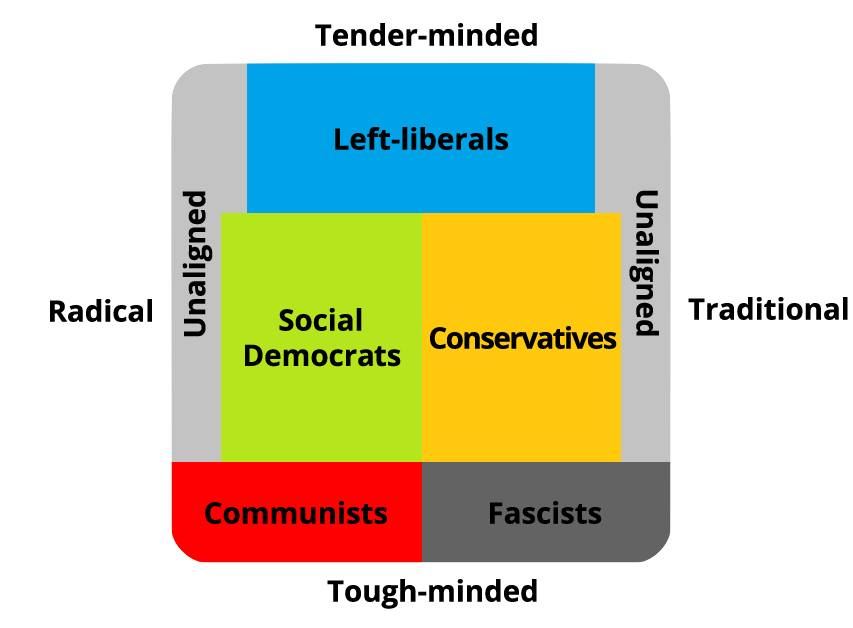Eysenck Political Test
You are here because one of your friends linked you to his or her Eysenck Political Test result, which is:
- 45.8% Radical, 29.2% Tough-minded.


Explanation of Quadrants
Left-liberals: In Eysenck’s view, left-liberals are tender-minded and neither radical nor traditional, suggesting that they are primarily motivated by a cooperative view of society and compassion for the weak.
Social Democrats: Lean toward the radical side and are somewhat in-between the tender and tough-minded styles, suggesting that they are primarily motivated by economic equality.
Conservatives: Lean toward the traditional side and are likewise in-between the tender and tough-minded styles, suggesting that they are primarily motivated by preserving what has worked in the past.
Fascists: Are both tough-minded and traditional, suggesting that they take a harsh and authoritarian view of politics while at the same time seeing many elements of traditional society as worthy of preservation.
Communists: Are both tough-minded and radical, taking an equally harsh and authoritarian view of politics, but with the aim of upending traditional society in favor of revolution.
References
- Eysenck, H. J., & Coulter, T. T. (1972). The Personality and Attitudes of Working-Class British Communists and Fascists. The Journal of Social Psychology, 87(1), 59–73. doi:10.1080/00224545.1972.9918648
- Tetlock, P. E. (1984). Cognitive style and political belief systems in the British House of Commons. Journal of Personality and Social Psychology, 46(2), 365-375. http://dx.doi.org/10.1037/0022-3514.46.2.365
- Wilson, G. D., & Brazendale, A. H. (1973). Social Attitude Correlates of Eysenck’s Personality Dimensions. Social Behavior and Personality: An International Journal, 1(2), 115–118. doi:10.2224/sbp.1973.1.2.115
GET THE FULL STORY
Become a lifetime member with a one-time payment
WHAT YOU GET
Access to premium, members-only tests
Access to all of our eBooks (value $44.94)
Access to 100s of premium articles
Access to 100s of premium type assessments
Access to premium infographics
New content continuously added
Become a member